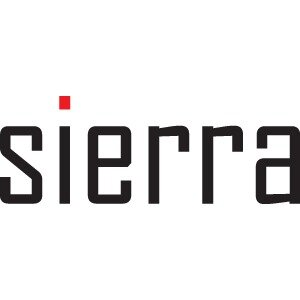Best ADR Mediation & Arbitration Lawyers in Mexico
Share your needs with us, get contacted by law firms.
Free. Takes 2 min.
Or refine your search by selecting a city:
List of the best lawyers in Mexico
About ADR Mediation & Arbitration Law in Mexico
Alternative Dispute Resolution (ADR) in Mexico offers mechanisms like mediation and arbitration as effective tools to resolve disputes without resorting to lengthy court proceedings. These methods are recognized and increasingly used in the Mexican legal landscape, promoting quicker, more amicable solutions that benefit all parties involved. ADR is supported by the country's legal framework, particularly through the Commercial Code and International Treaties, ensuring it aligns with global standards.
Why You May Need a Lawyer
Seeking legal advice in ADR mediation and arbitration is crucial for several reasons. A lawyer can help you understand the intricacies of your case, represent your interests effectively, and facilitate negotiations. Common situations include commercial disputes, labor disagreements, family law matters, and international trade conflicts. Lawyers ensure that the alternative dispute mechanisms are appropriately utilized for a fair resolution, safeguarding your rights throughout the process.
Local Laws Overview
Mexico's ADR framework is governed by various legal provisions. Key aspects include:
- The Commercial Code, which provides regulations for arbitration proceedings, including the enforcement of arbitration awards.
- The ADR Law for Mexico City, which serves as a model for other states, supporting mediation and conciliation as primary tools for conflict resolution.
- International treaties, such as the New York Convention on the Recognition and Enforcement of Foreign Arbitral Awards, ensuring foreign awards are enforceable within Mexico.
- Amparo Law provisions, which offer protection against potential violations of constitutional rights during arbitration proceedings.
Frequently Asked Questions
What is the difference between mediation and arbitration?
Mediation involves a neutral third party who facilitates negotiation between disputing parties to reach a voluntary settlement. Arbitration, on the other hand, involves an arbitrator who hears evidence and makes a binding decision for the parties.
Is ADR mandatory in Mexico?
While ADR is highly encouraged for its efficiency and effectiveness, it is not mandatory. However, certain contracts may contain clauses mandating arbitration in case of disputes.
Can ADR be used for any type of dispute?
ADR is suitable for a wide range of disputes, including commercial, civil, family, and labor issues. However, criminal matters are typically outside the scope of ADR.
Are ADR decisions binding in Mexico?
Arbitration decisions are binding and enforceable under Mexican law, similar to court judgments. Mediation outcomes are binding if both parties agree and sign a settlement agreement.
How long does an arbitration process take in Mexico?
The duration of arbitration varies based on the case complexity but typically ranges from several months to a year, significantly shorter than traditional litigation.
What role does the arbitrator play?
An arbitrator acts like a judge, evaluating evidence, hearing arguments, and making a binding decision on the dispute.
Can a mediation or arbitration ruling be challenged?
Mediation agreements, once finalized, are hard to challenge unless there's evidence of coercion or fraud. Arbitration awards can be annulled under specific, narrow circumstances, particularly procedural irregularities.
How are ADR fees structured in Mexico?
Fees vary but are generally less than court proceedings. They typically include costs for mediators/arbitrators, administrative fees, and, if applicable, attorney fees.
Who can be a mediator or arbitrator?
Mediators and arbitrators are typically professionals with expertise in relevant fields, often lawyers or retired judges, accredited by recognized institutions.
How do I initiate an ADR process in Mexico?
Initiate ADR by consulting with a lawyer to evaluate your case, followed by drafting a submission agreement with the opposing party to start mediation or arbitration.
Additional Resources
If you're seeking further information or assistance, consider reaching out to:
- The Mexican Chamber of Commerce, offering arbitration services and resources.
- CONAMED (National Commission for Medical Arbitration), for disputes in the healthcare sector.
- The Mexican Bar Association, for information and referrals to ADR practitioners.
- Local legal aid societies, providing assistance and connecting you with qualified lawyers.
Next Steps
If you require legal assistance, start by identifying the nature of your dispute and considering ADR as a viable solution. Consult with a specialized lawyer to guide you through the process, draft necessary agreements, and represent your interests in mediation or arbitration. Ensure that any lawyer or arbitrator you engage is well-versed in Mexican ADR laws and recognized by professional accreditation bodies.
Lawzana helps you find the best lawyers and law firms in Mexico through a curated and pre-screened list of qualified legal professionals. Our platform offers rankings and detailed profiles of attorneys and law firms, allowing you to compare based on practice areas, including ADR Mediation & Arbitration , experience, and client feedback.
Each profile includes a description of the firm's areas of practice, client reviews, team members and partners, year of establishment, spoken languages, office locations, contact information, social media presence, and any published articles or resources. Most firms on our platform speak English and are experienced in both local and international legal matters.
Get a quote from top-rated law firms in Mexico — quickly, securely, and without unnecessary hassle.
Disclaimer:
The information provided on this page is for general informational purposes only and does not constitute legal advice. While we strive to ensure the accuracy and relevance of the content, legal information may change over time, and interpretations of the law can vary. You should always consult with a qualified legal professional for advice specific to your situation.
We disclaim all liability for actions taken or not taken based on the content of this page. If you believe any information is incorrect or outdated, please contact us, and we will review and update it where appropriate.
Browse adr mediation & arbitration law firms by city in Mexico
Refine your search by selecting a city.

















